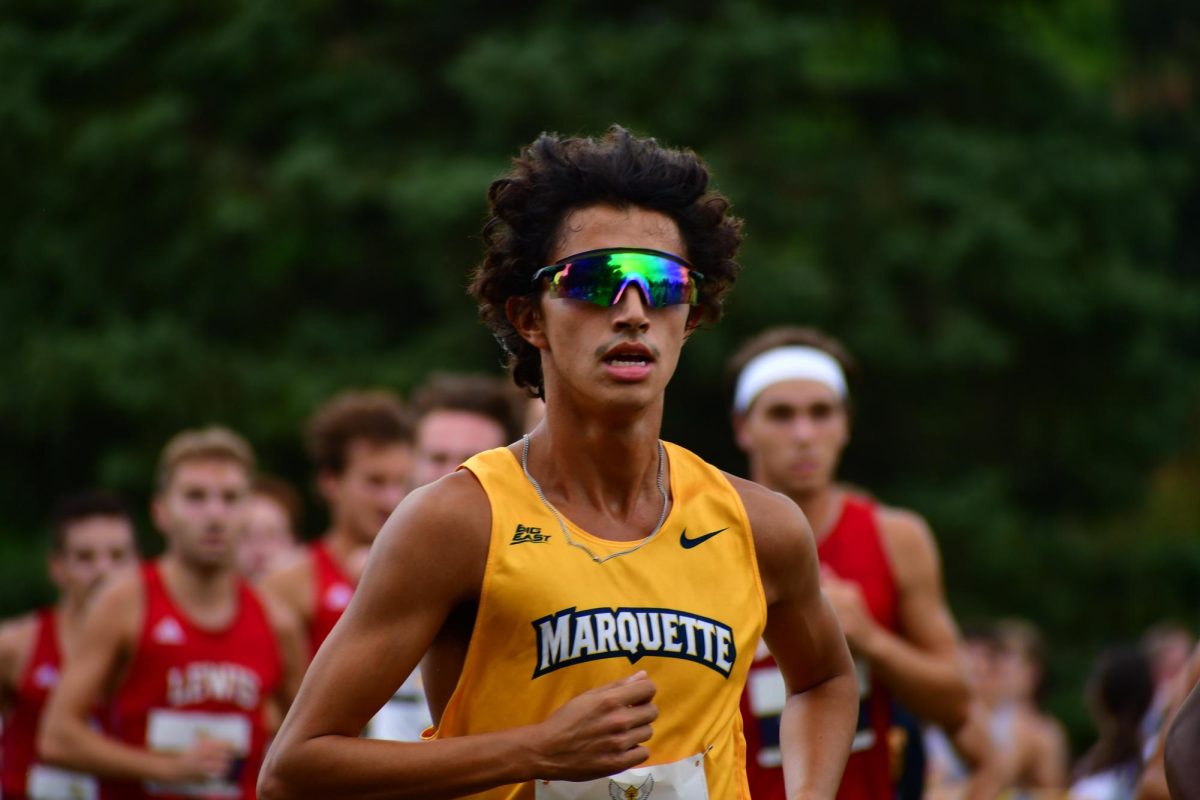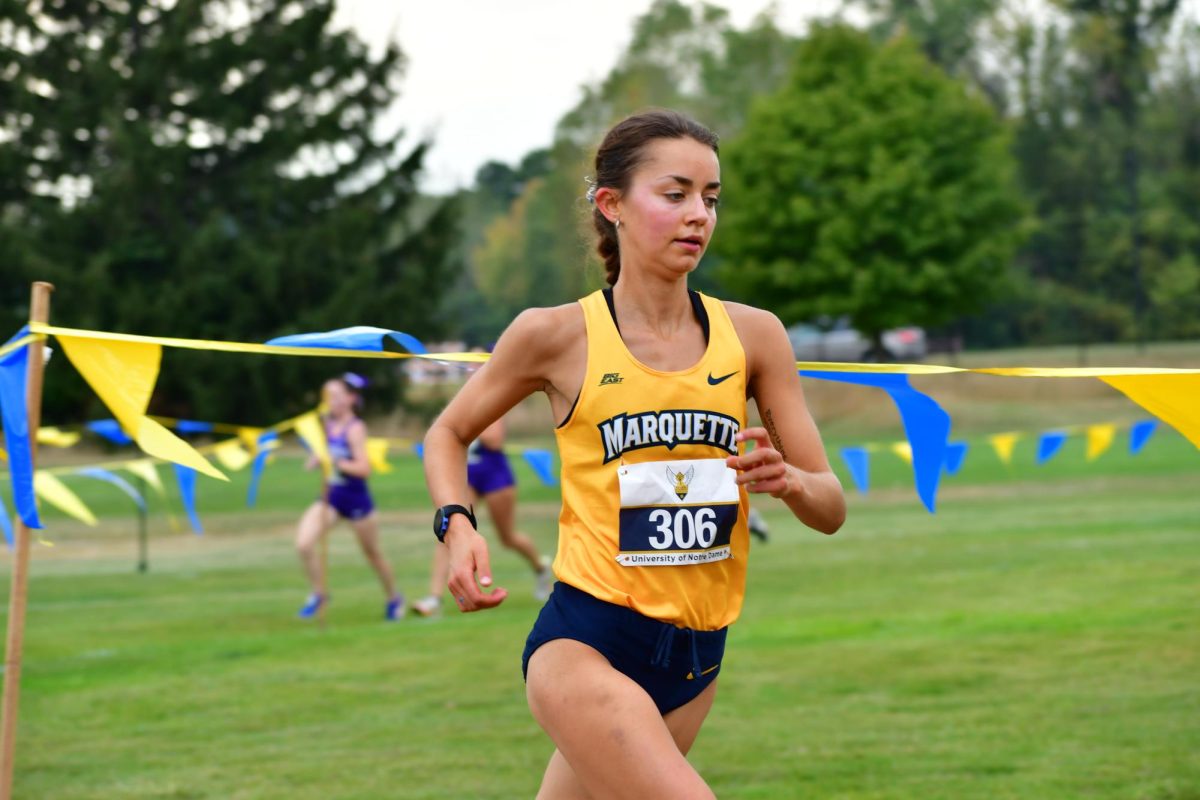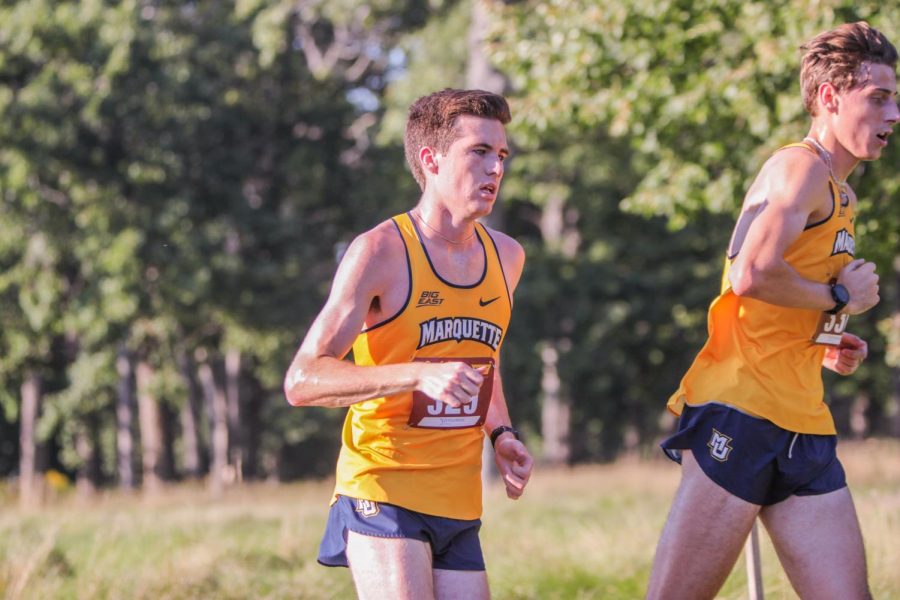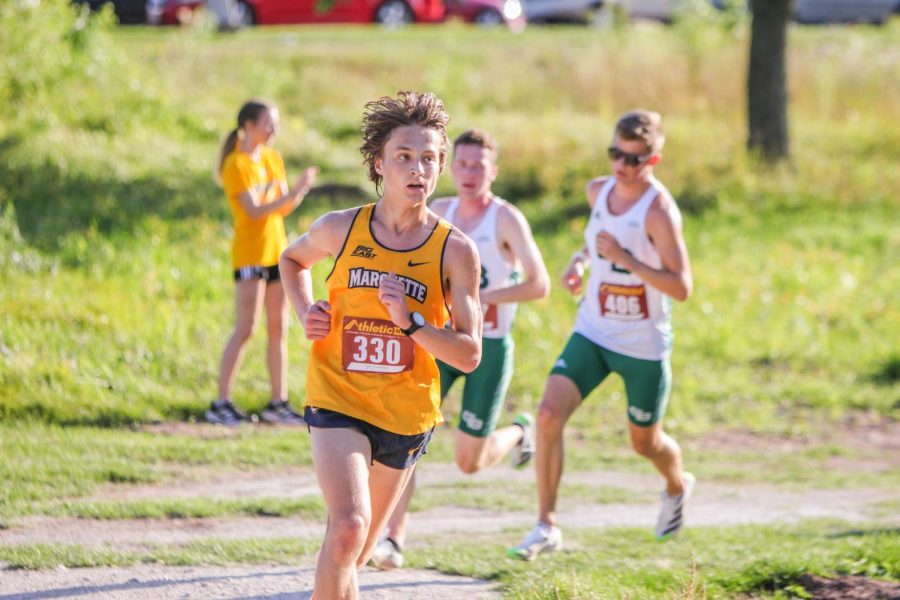Both Marquette cross-country teams counted this season as a success due to their constant improvement, impressive performances at post-season meets and team continuity, according to coach Mike Nelson.
He said the highlight of the season for both teams was their ability to peak at the right time.
“We ran well when it mattered, at the conference and regional races,” Nelson said. “Both teams did a good job of peaking at the right point, which is a sign of correct coaching, listening and them taking good care of themselves. If they don’t take good care of themselves they can’t perform when it matters the most.”
Throughout the season, the men were paced by seniors Blake Johnson and Peter Bolgert and sophomore Jack Senefeld.
Johnson and Bolgert led the Golden Eagles six times throughout the year, posted new personal records and were the top two finishers for Marquette at the Big East Conference Championships and the NCAA Great Lakes Regional.
Senefeld said the team learned from top competition early in the year, especially at the Wisconsin Adidas Invitational.
“Watching some of the better teams in the nation, you can really learn a lot from the seriousness of their attitudes and how they conduct themselves,” Senefeld said. “The Badgers ran their race and didn’t let others dictate what they were going to do. We can learn from that and make sure we run our own race.”
He said it was important that the team focused on its expectations during races, especially at the NCAA Great Lakes Regional.
“We were looking at Cincinnati and Notre Dame, and we were pacing ourselves off of them,” he said. “We tried to run with teams that were going to finish around us, and some teams we were trying to pace ourselves off of.”
Throughout the year, the women were paced by the runners with the least amount of Division I experience: freshmen.
Freshmen Kenzie Vicker and Elisia Meyle combined to lead six of the Golden Eagles’ seven races. Meyle led the final four races.
Junior Carly Windt enjoyed the team’s parity and said it helped push each runner to achieve her best.
“(Meyle and Vicker) are both very strong competitors. That is something the freshmen have just had coming in,” she said. “We just wanted to lead them by example and (help them) peak at the right times.”
Nelson said the season helped himself mature as a coach.
“We need to do a better job of setting specific goals for our women right away in the fall,” he said. “We need to all be on the same page right from the beginning of the year.”
He said setting goals right away in the fall can help provide immediate results and capitalize on the success each team experienced at the end of the year, capped by an eighth place finish at the NCAA Great Lakes Regional by the men’s team on Nov. 12.
Nelson stopped short of isolating specific goals for the next season but admitted the indoor and outdoor track seasons play a big role in development.
“Immediately, we’re looking to get faster at track, so that you build confidence and aerobic strength,” he said. “But expectations go year by year as a coach. Next year I’m raising my expectations for each individual, and if each individual improves then we’re going to get better as a team.”





